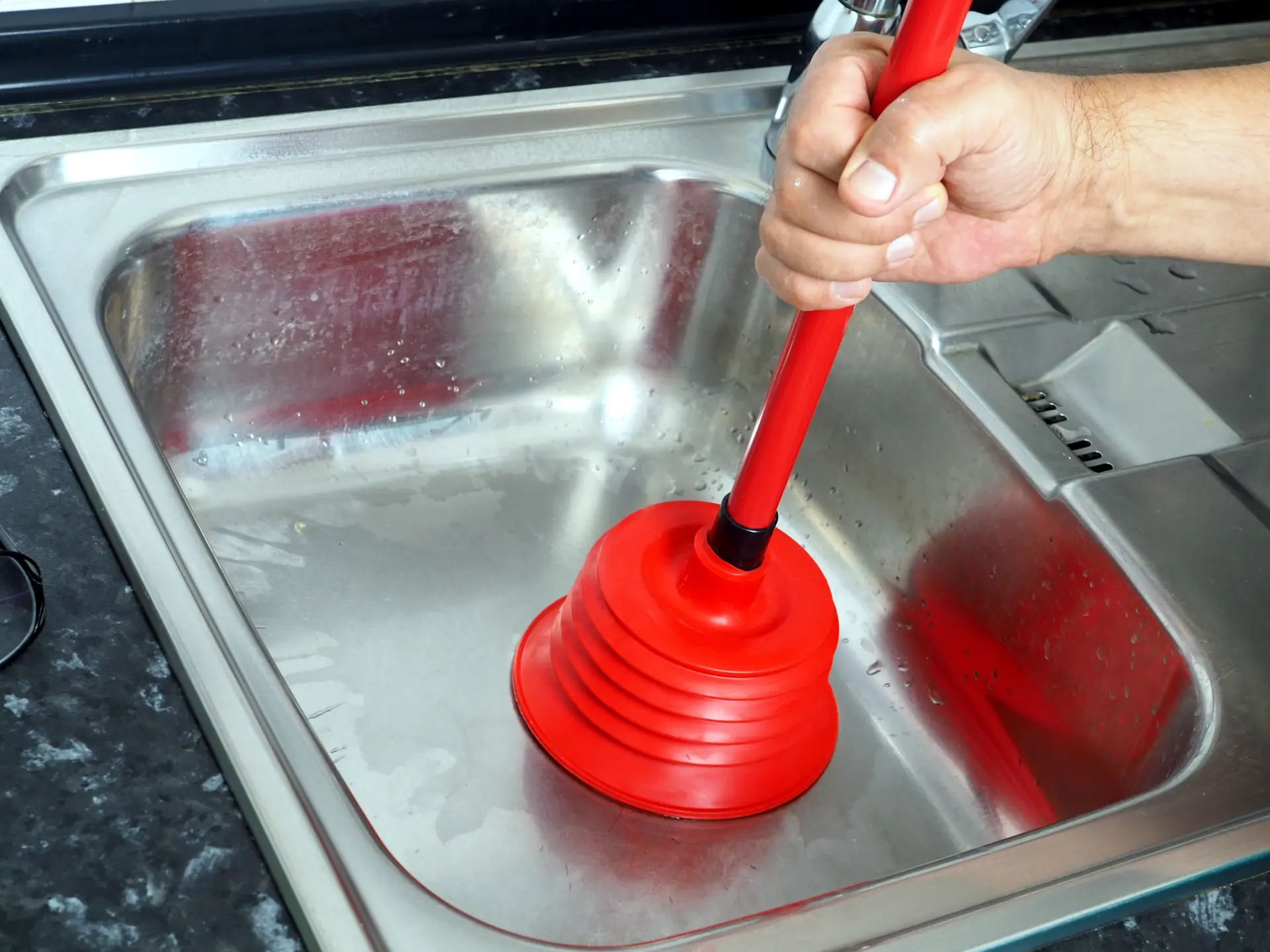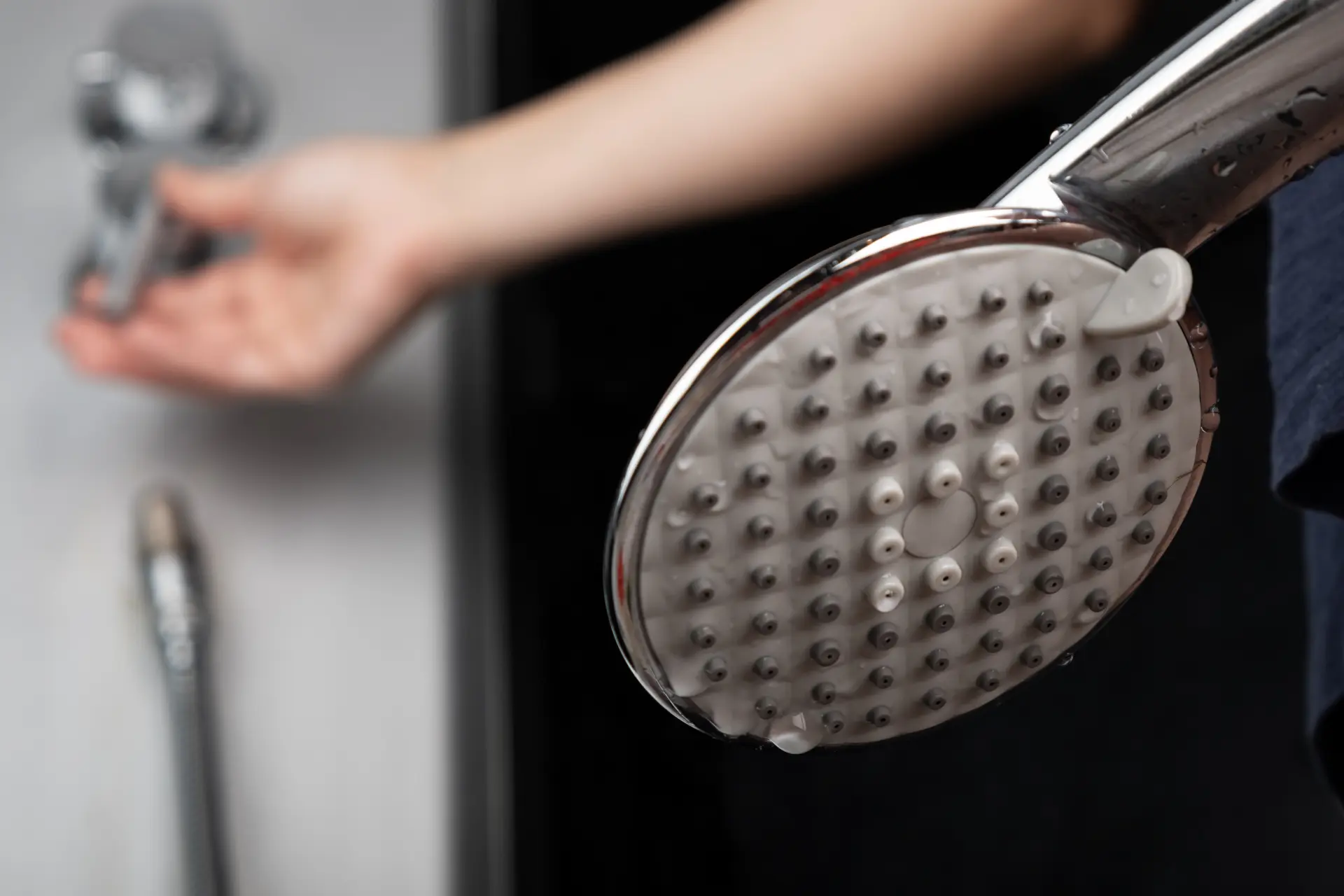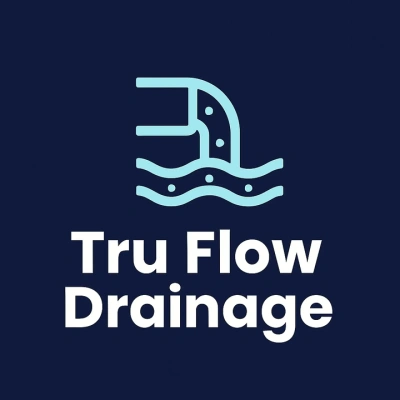Need a simple guide to dealing with blocked drains? Learn top tips for clearing stubborn blockages, whether indoors or outside, and when to call a professional plumber.
Common Causes of Blocked Drains
Blocked drains are often the result of waste materials building up over time, both inside and outside the home. In kitchens, pouring cooking oils, fats and grease down the sink is a common mistake. These substances tend to cool and harden all throughout the pipework, sticking to the sides and trapping bits of food and debris, which slowly create a blockage.
Even if oils are rinsed away with hot water, they can still solidify further down the drain. In bathrooms, hair is a major culprit. It tends to gather in plugholes and pipes, especially when mixed with soap residue, shampoo or conditioner.
Over time, this mixture forms thick clumps that stop water from draining properly. Flushing unsuitable items down the toilet is another key cause. Wet wipes, even those labelled as "flushable", do not break down the same as toilet paper. Nappies, cotton buds and sanitary products are also too bulky and can quickly block narrow pipes.
Outside your home, drains can also be affected by the natural elements. Leaves, mud, and dirt can collect in outdoor drain covers, especially during autumn, winter, or times of heavy rain.
Tree roots are another serious issue, as they can grow into underground pipes in search of water, eventually breaking through and causing damage or full blockages. Knowing these causes can help you take simple steps to avoid drainage problems in the future.
Tools You May Need
To deal with a blocked drain at home, having the right tools can make the job much easier. A plunger is one of the most helpful items, as it uses suction to shift small clogs in sinks, toilets or showers. For deeper or more stubborn blockages, a drain snake or drain rod can be pushed into the pipe, and this will help break up or remove the blockage. Rubber gloves are important too, as they protect your hands from dirty water and unpleasant waste.

It’s also a good idea to always keep a bucket and some old towels close with the intention of catching any spills and helping with clean-up.
For outdoor drains, a garden hose or pressure washer can be useful for clearing out leaves, mud or other debris.
These basic tools are often enough to handle common blockages and help you get your drains running properly again.
How to Unblock a Sink
Unblocking a sink can usually be done at home using a few simple steps. First, clear the area around the sink to give yourself space to work. Put on rubber gloves to protect your hands, and place a bucket or bowl under the U-bend in case you need to remove it later. Begin by checking the plughole for visible debris such as food scraps, hair or soap build-up. You can remove these using your fingers, tweezers or a small hook.
Next, boil a full kettle and slowly pour the hot water down the drain. This can help melt and loosen any existing grease or soap that could be creating a blockage. Allow a few minutes for the water to work. If the sink is still slow to drain, try using a plunger. Fill the sink with just enough water to cover the rubber end of the plunger, then pump it up and down firmly. The suction may be enough to shift the blockage.
If plunging does not help, use a drain snake. Gently feed it into the plughole, turning the handle to guide it through the pipe. In this instance, if you begin to feel any resistance, twist and pull to break up or remove the clog. Take care not to force it, as this could damage the pipe. If needed, you can also remove the U-bend under the sink. Make sure your bucket is in place, unscrew the fittings and take off the pipe. Clean out any trapped waste, then put everything back securely.
Finally, flush the sink with another kettle of boiling water to wash away any remaining grime. Run the tap for a few minutes to check that the water is flowing properly. If the sink still blocks or the problem returns often, it may be best to contact a plumber.
How to Clear a Blocked Shower or Bath
To begin, it's best to remove any visible hair, soap scum or debris from around the drain. Put on rubber gloves and lift or unscrew the drain cover if needed.
Use your fingers or a bent wire hook to pull out as much waste as possible. This is usually the main cause of slow-draining water in showers and baths. Once cleared, pour a full kettle of boiling water slowly down the drain. This can help break down soap and grease that may be clinging to the inside of the pipe.

If you find that the water is still draining slowly, try using a plunger. You'll need to block the overflow hole with a damp cloth, and this will create a strong seal, to which you can then place the plunger over the drain and pump it up and down several times.
Should this method fail, use a drain snake to reach further into the pipe. Insert it gently, twist to loosen the blockage, and pull it back to remove any trapped debris.
To finish, we recommend pouring another kettle of boiling hot water down the drain or running the tap to check that the water now flows freely.
When to Call a Professional
If you have tried several methods and the drain is still blocked, it may be time to call a professional plumber. Signs that you need expert help include water backing up into sinks, toilets, or showers, drains making gurgling sounds, or strong, unpleasant smells that persist.
If more than one drain in your home is blocked at the same time, it could point to a problem deeper in the main drainage system. In these cases, home tools and basic methods are often not enough to solve the issue.
A professional plumber is capable of dealing with numerous complex blockages safely and effectively. They have a series of specialist tools with them, such as CCTV drain cameras, high-pressure water jets, and pipe locators, which allow them to find and fix problems quickly without causing damage to your pipes.
Trying to fix serious drainage problems yourself can make things worse or lead to costly repairs later. Calling a professional may cost more at first, but it often saves time, stress and money in the long run.
Struggling with a drain blockage in your home? Let us help with blocked drains in Blackpool and Lancashire. We are a drainage contractor that has been resolving drainage issues for local homes, businesses, and property developers for more than 25 years.


